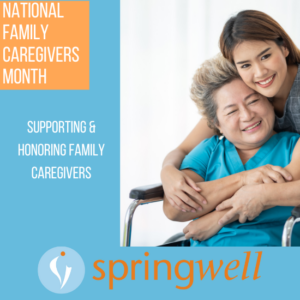Nov 1
Caregiver Tips: Coping with Resistance

Disagreement about care decisions is one of the most difficult dilemmas that many caregivers face. The identified care recipient may deny that they need assistance, while their support community may believe that extra care would enhance their safety and comfort and give them a needed break from daily responsibilities.
Maintaining independence and dignity is good for any person’s body, mind, and spirit. People who do not make their own decisions sometimes give up, increasing their risk of depression and anxiety. A healthy approach to care can help people maintain their autonomy.
- Work with your care partner’s reality. It is frustrating and futile to attempt to change a person’s firmly held beliefs. Instead, find as much common ground as possible. The goal is to peacefully support them and demonstrate your understanding of the difficult situation they face. For the moment, don’t debate the facts of the situation, but focus on their feelings. Let them know you empathize with their sadness, anger, frustration or confusion.
- Find the common ground. Often caregivers and their care partners approach caregiving tasks as members of opposing teams. The care recipient’s goal is to maintain their current lifestyle. The caregiver’s priority is safety. The best way out of this impasse is to find “the middle way”, and work together. Compromise is often essential. Maybe the care recipient does not want full-time help but will accept some services such as meal deliveries, a part-time aide or modest home modifications for safety.
- Involve the care partner in making decisions. Perhaps it is no longer possible to put off hiring a home health aide. The care recipient can participate in choosing the person. Your approach to implementing services is as important as the services you implement. One of your most important roles as a caregiver is to help the other person retain as much control as possible.
- Make it your issue. Your care partner may want the help you offer, but may feel that to accept it would be an admission they need care. Try presenting the suggestion as a favor to you. Explain that taking this step will put you more at ease. By feeling they are helping you, they can maintain a sense of dignity and self-respect.
- Be ready for windows of opportunity. Familiarize yourself with resources available before you need them. In some situations, a care partner is only willing to make changes when a crisis occurs. These windows can close as quickly as they open. When you have the information you need before such a crisis, you will be able to deploy the care before the person can resist it.
- Change is difficult. Your goal is to make sure your care partner is safe and well cared for. Trying to convince a person they are going to be happier with the care that someone else has designed and coordinated may be futile. If your care partner is struggling with the hard reality of aging or changes in ability, allowing them to grieve their loss will create space for the warmth of human relationships to fill the void.
- Avoid emotional minefields. Care planning is not the time to rehash old issues and arguments. Keep the discussion focused on current, practical realities. Avoid assigning blame for past decisions, actions, and traumas. If the discussion veers off-track, refocus on the purpose of planning care. If the discussion continues to drift toward toxicity, the best course may be to let it go for another day.
- Set limits. People have the right to reject suggestions, however, caregivers have the right to make their own needs understood. For example, your care partner can refuse a suggestion to hire a house cleaner, but as the caregiver you can also refuse to perform that function. Setting limits may convince your care partner to accept needed services. If not, the decision will be theirs. Unless you have legal authority over care decisions, you cannot impose your will on the person you are caring for, even if you think it is in their best interest.
- Choose your battles. You, and your care partner, will agree on some issues but not all. Arguments you MUST win, are best reserved for issues which directly affect the health and safety of the person receiving your care. Remember that caregiving is a marathon, not a sprint, and you will cross the “finish line” together with your care partner. Learn when to push and when to accept the situation as it is.


